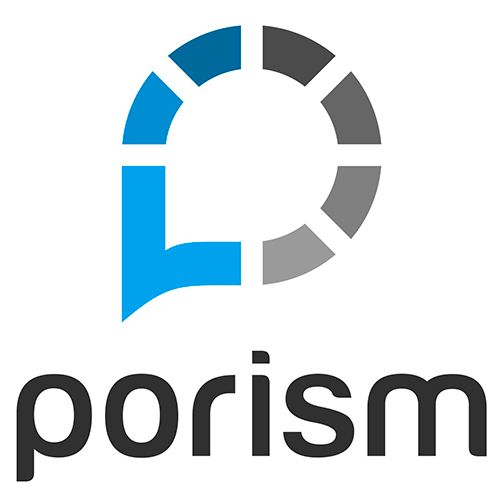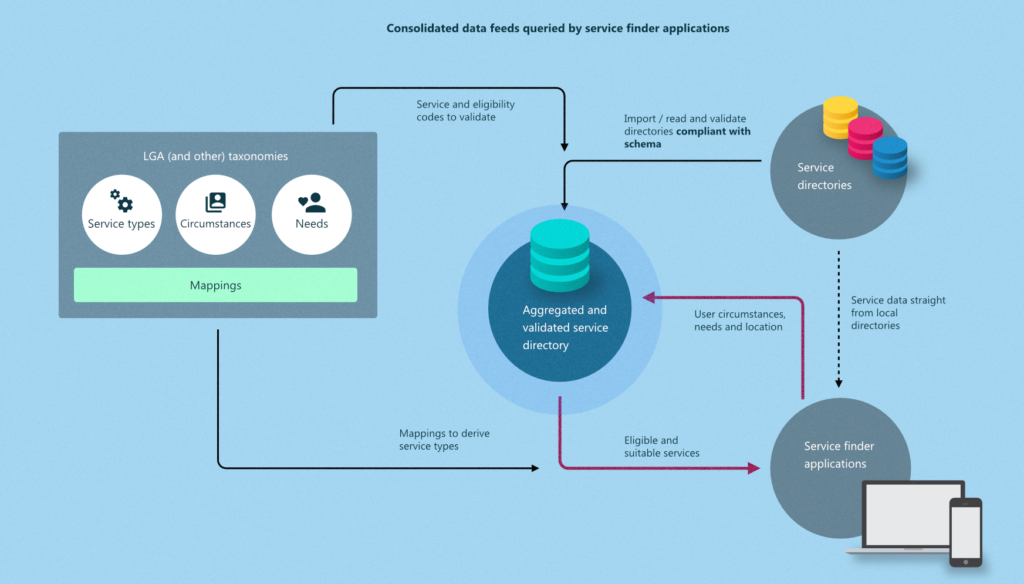

Earlier this year, the Ministry of Housing, Communities and Local Government (MHCLG) has commissioned discovery work on standards for local community-based services, which recommended alignment with Open Referral’s resource data exchange standards. Now, Porism is working with LGA and iStandUK to test and support extensions to Open Referral. This work includes commissioning an open-source “service finder” application – for which Porism is currently soliciting proposals.
This post is adapted from the original on Medium.
Moving towards a single source of reliable open data on services to improve people’s quality of life.
Most of us who’ve worked in or with the public and voluntary sectors will have come across a plethora of directories of services from registers of specialists kept by a department to more general lists of family services, sporting activities and advisers. The prevalence of such directories of overlapping content and variable quality is a testament to how far away we are from achieving an efficient means of getting accurate information. Now the Local Government Association (LGA) is piloting an approach to bring us closer to that goal. Here I summarise the approach being taken and provide some links for open data people who want to get more involved.
In 2017 the LGA ran a project with Lancashire councils to gather service data in a consistent tabular format defined by the local government standards body, iStandUK. The project showed that, in addition to well-organised governance and data assurance mechanisms, a richer data structure is needed to make a directory more powerful than the results of a simple Google search. The LGA is aiming to provide more trusted, specific and personalised search results appropriate to where someone lives, what their needs are and what time they might have available rather than a long list of potential service providers that will require further research to identify appropriateness and eligibility.
In parallel with that work, the Open Referral international standard has matured with similar aims although they have not yet achieved the level of personalisation that the LGA aspires to. The LGA is now ready to trial a refined and extended version of the Open Referral standard building on the lessons of the 2017 project. The standard will be adopted by three councils collating directories as part of a project sponsored by the Department for Digital, Culture, Media & Sport to identify services that help address loneliness (see strategy paper). Other councils and their suppliers are keen to be involved so they’ll be kept informed and given opportunities to participate in collecting and consuming data.
Refining and applying the Open Referral standard
In liaison with the Open Referral community of users, we will:
The constrained version of the schema concentrates on what is most important for the discovery of local services in England.
Our schema extensions will test the viability of more formal structures for data defining service coverage, eligibility and third party reviews. These extensions provide an alternative to the simple text fields in the core Open Referral specification. The intention is to provide sufficient information for a search to be able to narrow down services to a small list well-suited to someone’s needs. An example enquirer might be a woman in her fifties in a rural location with mobility problems looking to socialise more.
The application profile will define how publishers should reference service coverage using standard Office of National Statistics (ONS) area identifiers and service types from an extended version of the LGA’s Service types list. The Circumstances list maintained by the LGA will be used to reference target audiences and eligibility criteria. It is hoped that links from circumstances and needs to appropriate types of service will help search engines narrow down which services are relevant to an enquiry. Project participants will help refine these standard lists by marking up a copy of this extract of lists and we’ll test the feasibility of the whole approach.
Accessing the data via web services
Standard web methods, extending those defined by Open Referral, are being defined for retrieving service directory data. We’re consulting directory software suppliers who’ve shown an interest in supporting the standard. These include Place Cube, who have a service directory product which supports the LGA’s version 1 standard, and Public Consulting Group.

The model approach will be illustrated by a central database taking directories from several sources and providing an Application Programmer Interface (API) to query data on local services. It will apply the circumstance/need definitions to pinpoint suitable services for an enquirer.
The project is now commissioning a service finder application that will be able to use the API of the consolidated data and of directories from suppliers who implement the standard. Read here for more details; applications are due by September 16th.
Working in the open
Of course, everything is being developed in the open, all software will be open source and data from participating councils will be published with an open government license. Source code from the project is here in GitHub.
Contact me or the LGA for more information if you’d like to be involved as a council, an open data person or a relevant software developer.

Leave a Reply